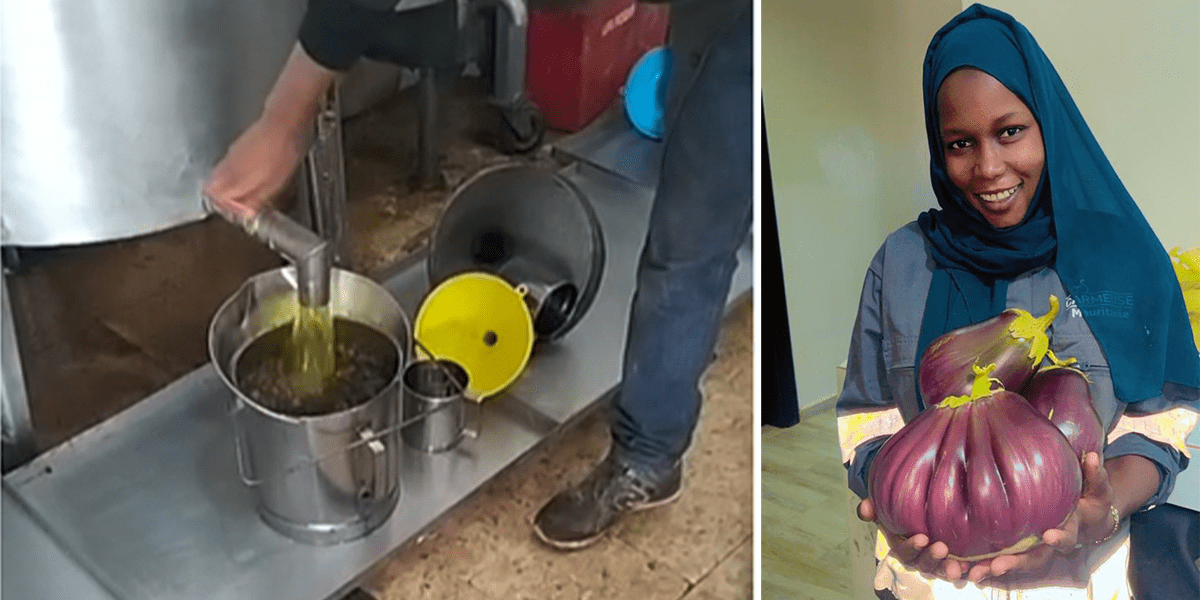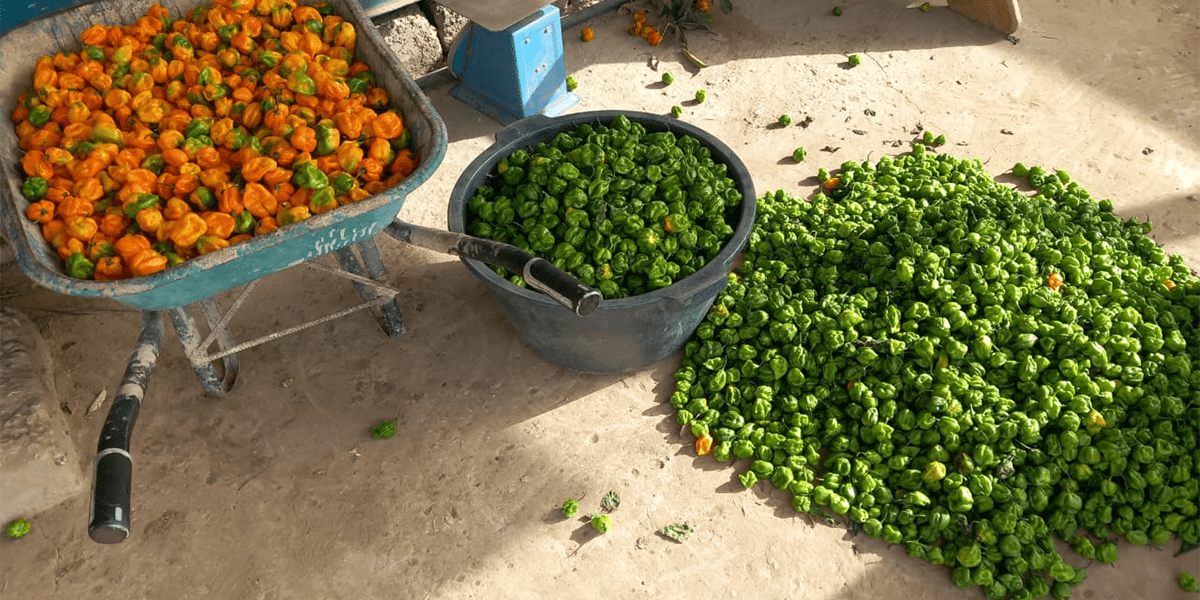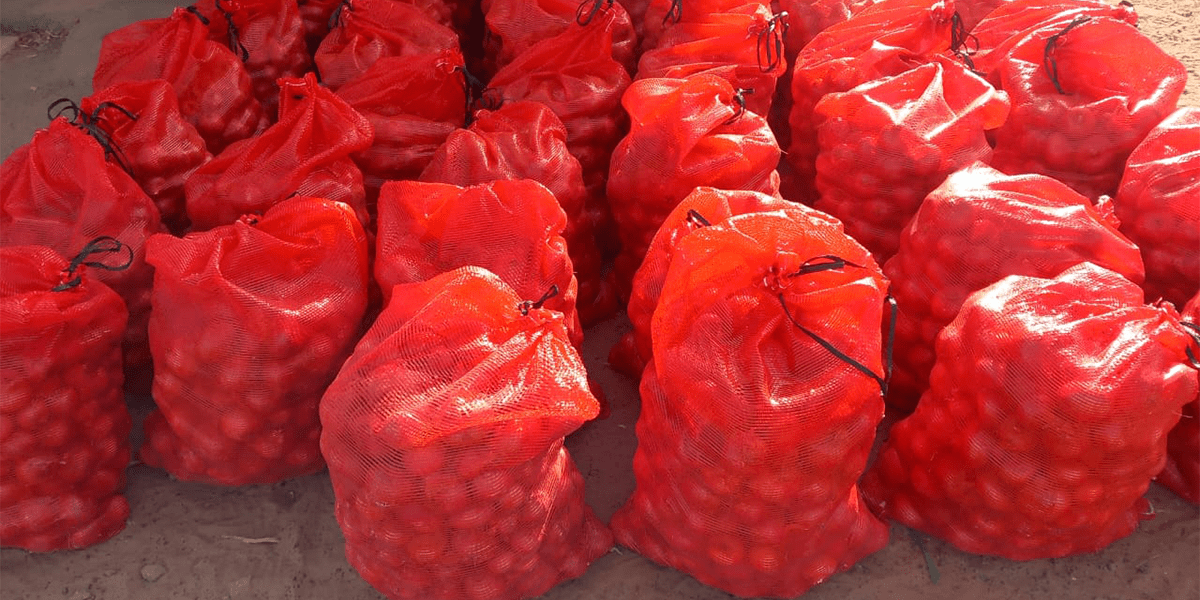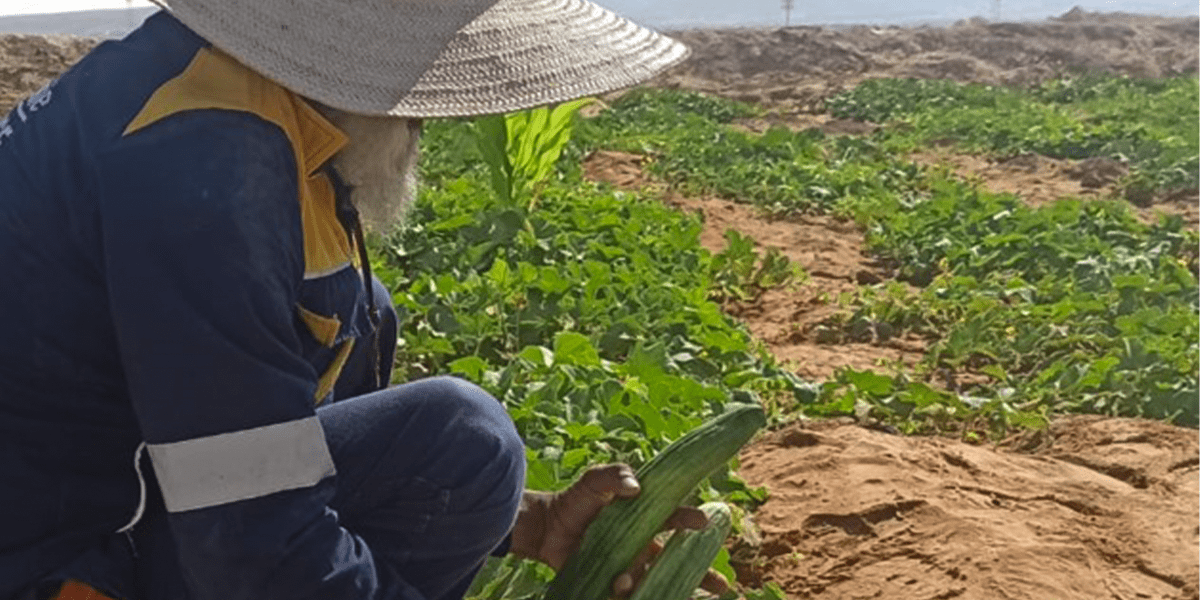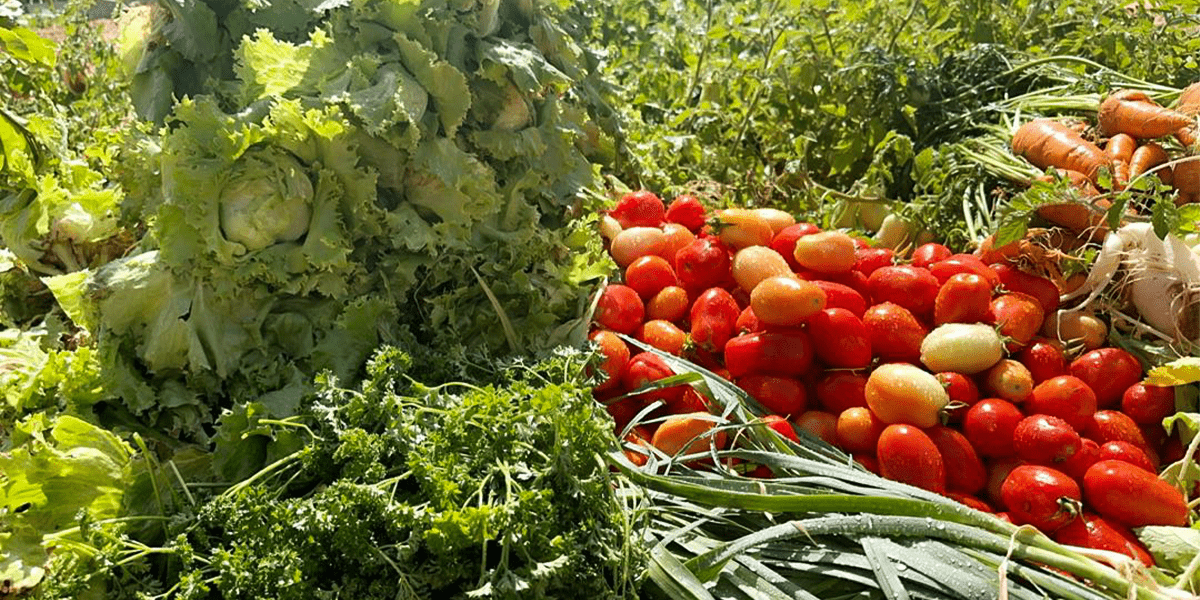
The vegetable gardens and farms at many of our plants and production sites are a point of pride for everyone at Carmeuse Overseas. They play a major role in our sustainability initiatives, creating opportunities to learn new skills, reconnect with nature, and provide fresh produce for our canteens, ensuring delicious and nutritious meals for everyone. Extra fruit and vegetables are also sold in the local communities, creating extra income and improving access to fresh produce.
This year, there have been four harvests at Carmeuse Mauritania, producing 40 kg of bananas and 57 kg of vegetables. In Ghana, the vegetable garden is thriving. Crops included 20 kg of tomatoes, 10 kg of radishes and 4 kg of lettuce, as well as parsley, cabbages, spring onion, carrots, and beetroot. At Handyman’s Lime in Zambia, the most recent harvest yielded 21.5 kg of onions, which were sold to employees. The first eggplant crop, and some of the onions, were donated to the canteen to be enjoyed by everyone onsite. Proceeds from sales go back into buying new seedlings and maintaining the gardens.
At Carmeuse Senegal, the farm is thriving with an abundance of vegetables including cucumbers, eggplants, tomatoes, onions, okra, and peppers. The total harvest weighed in at a whopping 3,732 kg altogether. They also planted lemon trees this year, which produced 80 kg of fruit. Additionally, the fishpond set up last year to create commercial opportunities for the local women in Bandia has seen 40 kg of fish sold. All funds generated from these projects go back into the management and cultivation of the farm and support the long-term plan for the farm’s self-sufficiency.
In Tunisia, the olive harvest yielded 93 liters of oil from over 100 kg of olives, with each member of the team receiving a 1-liter bottle to take home. The monthly fruit and vegetable harvests have produced plenty, with 30 kg of peaches and apricots in May and a massive 500 kg of cucumbers and 800 kg of purple onions in August. And the beehives are producing delicious honey.
The success of these initiatives offers valuable lessons that can be replicated at other sites, fostering green fingers and new green initiatives across our operations, while ultimately reinforcing the community links throughout Carmeuse Overseas.
